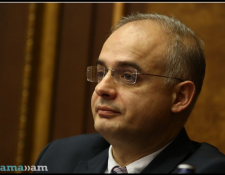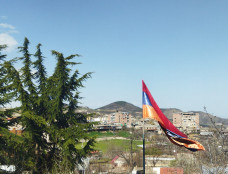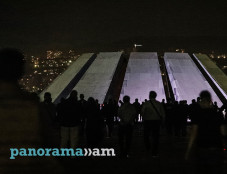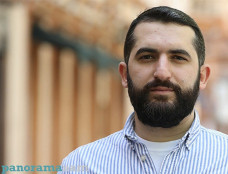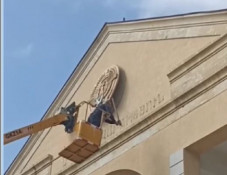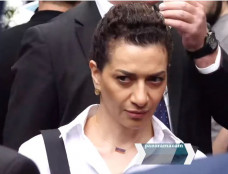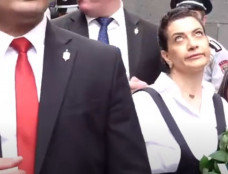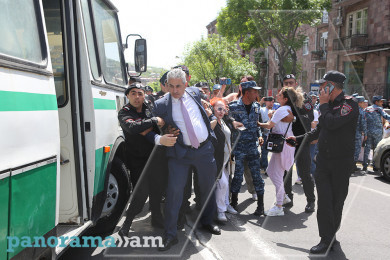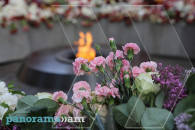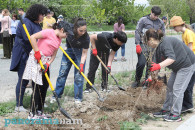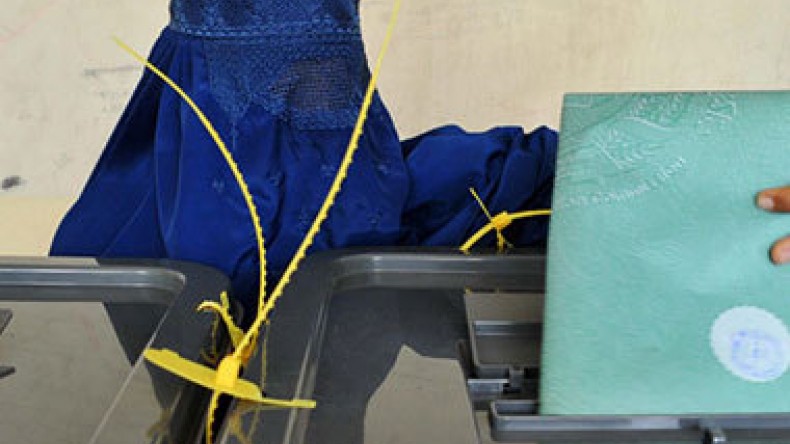
Afghanistan’s elections & the illusion of progress
By Ulson Gunnar
From RT
Elections held last week in Afghanistan, while highly publicized as a showpiece in NATO’s lengthy intervention, will most likely achieve very little.
They may also be the first in a series of steps the nation undergoes as it slips back into regression and darkness. NATO’s inability to establish security even in Afghanistan’s urban centers bodes ill for whatever government takes over in Kabul, particularly as Western troops prepare to permanently withdraw.
Promises of a ‘democratic tomorrow’ are more likely to be replaced at best with an uncomfortable, and perhaps only temporary, accommodation between rural tribesmen (including the Taliban) and the new government in Kabul. In time, as rural tribesmen redirect resources from their fight with NATO’s departing troops, and against whichever government presides in Kabul, that accommodation may inevitably lead to a ‘Taliban’ government once again ruling Afghanistan.
When superficiality becomes ‘progress’
The elections were praised by the UN and United States. The Washington Post in particular claimed it was a “milestone”, particularly for Afghan women who were able to both vote and appear on the ballot.
However, the Post’s piece, ‘Afghan women make election strides’, is suspiciously short for such a supposedly historical breakthrough. Its brevity is due to the fact that any historical examination of women’s social progress in Afghanistan, or any social progress for that matter, would reveal Afghanistan not as a nation finally emerging for the first time into the light of modernization, but instead a nation mired in decades of darkness as the direct result of Western interference during the 1980s.
One need not dig deep to discover the truth of Afghanistan’s once promising past, the US-backed armed conflict that destroyed it, and the resulting Dark Age it suffered through as a direct result. PBS provides a timeline of women’s rights in Afghanistan that begins in 1907 and ends in 2011.
The highpoint was in the 1960s and ’70s when Afghanistan was the benefactor of Soviet influence. The rollback of these achievements occurred with the rise of the Taliban, an alliance that was bolstered militarily by the United States in its bid to challenge the Soviet Union via a costly proxy war.
According to ‘Citizenship: Reflections on the Middle East and North Africa’ under a chapter titled, ‘The Saur Revolution and Women’s Rights in the Democratic Republic of Afghanistan’, the shift from women as property, to women as human beings is described, with a particular focus being placed on improving women’s literacy, education, and their inclusion into the national workforce.
It states, “The DRA [Democratic Republic of Afghanistan] was attempting to implement what reformers and revolutionaries had done in Turkey, Soviet Central Asia (see Massell, 1974), and South Yemen, as well as to carry out what earlier Afghan reformers and modernizers had tried to do in the early 20th century but had failed (see Gregorian, 1969).”
These reforms included changes to marriage laws, the expansion of literacy, and the education of rural girls and were resisted by rural tribesmen, the very tribesmen the United States and its allies would use to counter Soviet influence in Afghanistan through a destructive, protracted armed conflict. When Western news articles today occasionally hint to Afghanistan’s promising past, with comments such as “…the first time women have voted in decades,” it is this period of Soviet influence they are referring to.
US-armed tribesmen: Custodians of Afghanistan’s dark past, present & future
Ironically, NATO troops, led by the United States, have been fighting the very tribesmen they had funded, armed, and trained for a decade in a proxy war with the Soviet Union. The common saying, ‘the enemy of my enemy is my friend’, is often the crutch proponents of US aid to these tribesmen cite, but in reality, the Soviets were attempting then to implement many national reforms generally considered ‘Western’ and ‘progressive’ in nature. The decision by the West to intervene by association with tribesmen who diametrically opposed these reforms was based not on principles, but on a desire solely for geopolitical power.
And after their ‘enemy’ was defeated in the late 1980s and early 1990s, the West’s ‘friend’ rolled back hard-fought reforms, plunging Afghanistan into a dark age it is still struggling to reemerge from. Just as the Soviets struggled against rural resistance to reforms including the advancement of human rights, urban Afghans seeking to revisit these reforms today face a similar struggle, but with international partners far less dedicated to their cause. They are burdened with a corrupt, ineffectual government mired in scandal and tangled with foreign interests genuinely disinterested in principles and progress, and instead, only Afghanistan’s role among their greater geopolitical ambitions.
With the West withdrawing from Afghanistan, and the tribesmen they were fighting poised to quickly fill in the vacuum they leave, it appears that Afghanistan’s future is its past, with the superficiality of elections, women voting, and what US President Barack Obama calls the “democratic transfer of power,” all a temporary, fleeting present.
What might Afghanistan have looked like without billions of dollars in funds and weapons poured into rural tribesmen, eager to overturn reforms implemented by a Soviet-backed government in Kabul? Decades later would Afghanistan still be teetering between progress and regression, on the razor’s edge between a dark age and a renaissance?
For those around the world, particularly those who have followed the conflict in Afghanistan or have in fact, participated in it, suffered and sacrificed for it, eyes must begin to open and see that power, not principles, drive the West’s ambitions globally. They traded promising reforms being made in Afghanistan during the mid-20th century for regressive custodians who would oversee decades of darkness. They did so simply because they disliked under whom these reforms were being made, for economical and geopolitical reasons, and determined no reforms at all would be far more preferable.
The spite of Western foreign policy has and will continue to take its toll in Afghanistan and elsewhere their influence cannot be successfully thwarted. For the Afghan people, it may be decades more before they see even the level of freedom and progress they enjoyed briefly before the 1979-1989 war. For their Western occupiers, when true progress is not being sought, it will not be truly made. Afghanistan is a showcase of just this, not the success or failure of ‘Western democratization’, but the truth that ultimately lies behind disingenuous ‘democratization’ in the first place.
Newsfeed
Videos





